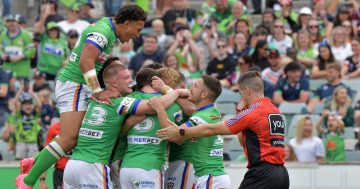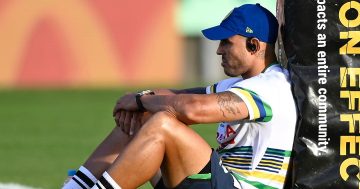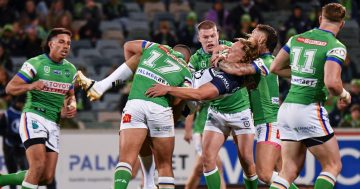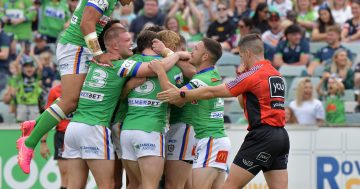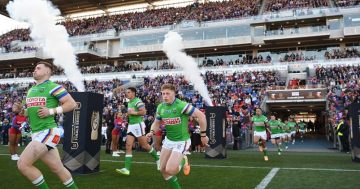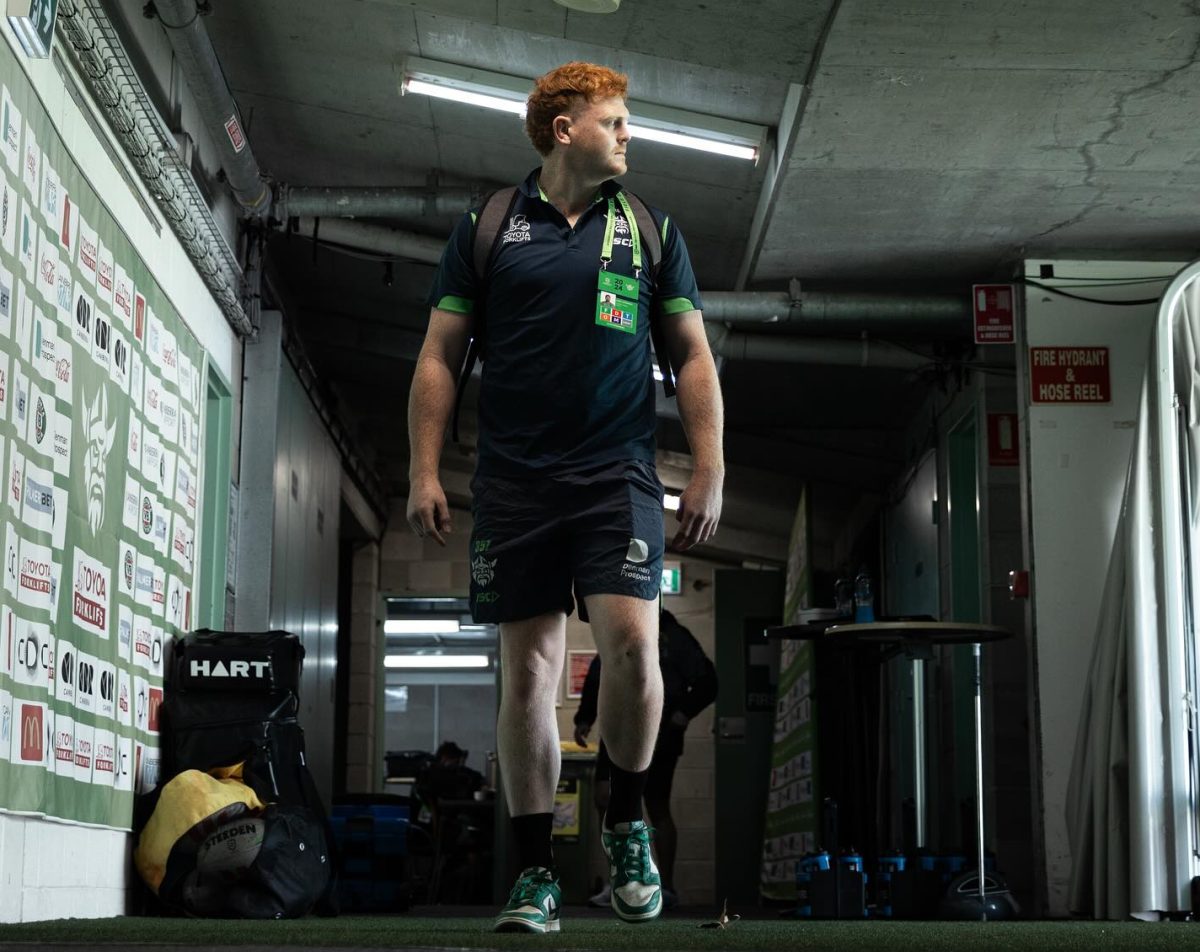
Corey Horsburgh ended the season well – an integral member of the team that won the three last games of the season. Photo: Raiders.
There was much fanfare when Corey Horsburgh signed a three-year contract extension with the Raiders in September 2023.
The deal effectively tied him to the Raiders until the end of the 2027 season.
It was justified. At the time, Horsburgh played Origin in a breakout year.
He was heralded as a crowd favourite at Canberra Stadium, and the crowd lifted every time he touched the ball.
But from the moment he signed that contract extension until a few weeks ago, Horsburgh’s career seemingly spiralled as he missed plenty of football through injury and suspension.
The relationship was on the rocks. With three years remaining on his contract, he was given permission to look elsewhere.
I wrote earlier in August that Horsburgh had probably played his last game for the Raiders, marked by the moment he started talks with rival clubs.
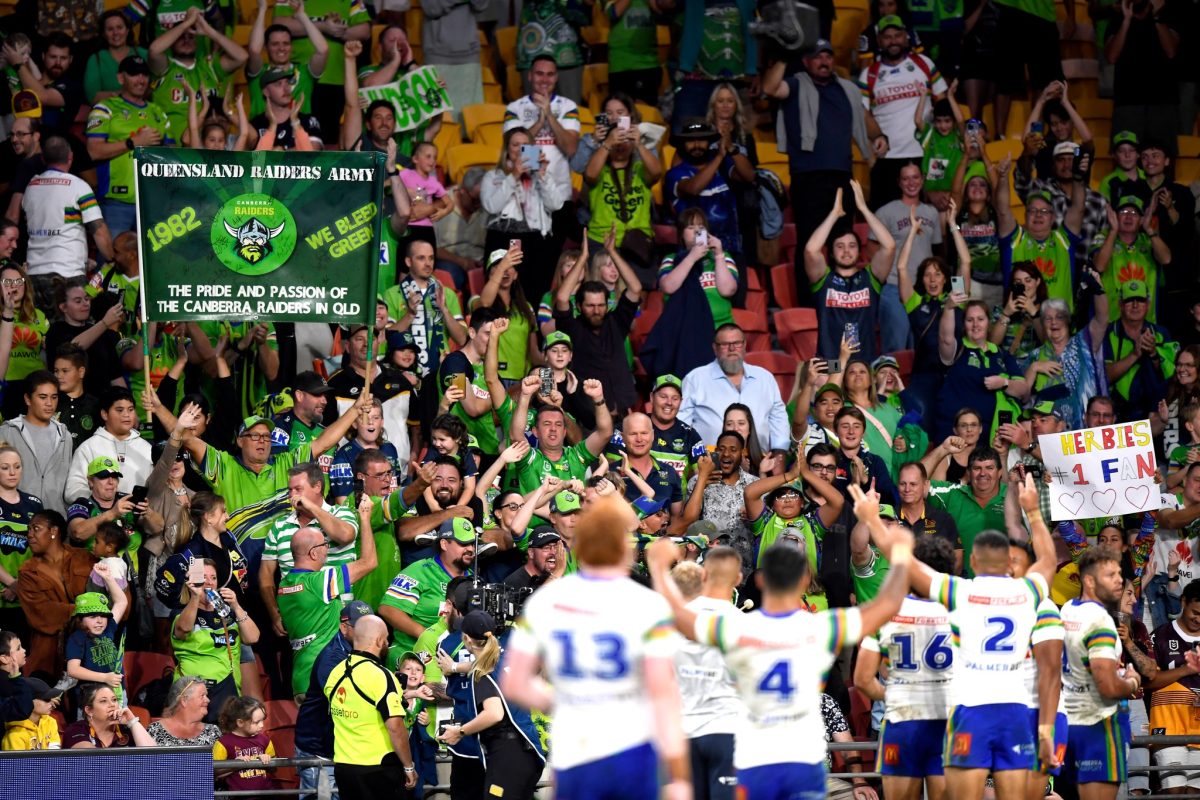
Raiders fans celebrating the win over the Broncos on 9 April 2023. Photo: Raiders.
Somehow, he played his way back into form, finishing the final three games as the starting prop. And these were the three games in which Canberra upset the Panthers, the Roosters and the Dragons, with Horsburgh in the thick of the action.
Three weeks, it would seem, is a long time in the NRL, with Horsburgh walking back on moves to leave the club, having been courted by the likes of Brisbane and Wests-Tigers.
Some tough love from Ricky Stuart has been credited with Horsburgh getting his act together.
His decision to stay in Canberra avoids the prospect of the Raiders continuing to contribute to his salary for the next three years despite playing with a rival club.
The Raiders are already committed to paying Corey Harawira-Naera’s reported $700,000 a year salary, which includes an option in his favour for the 2026 season, even though the prospects of him playing again for Canberra appear remote.

Corey just before his 50th game for the Raiders in 2023. Photo: Raiders.
Harawira-Narra hasn’t played since May last year after suffering an on-field seizure. The Raiders indicated they weren’t prepared to take a risk after he had a defibrillator inserted into his chest.
The Raiders, you might remember, had been in this position before.
Todd Payten was released from the final two years of his contract with the Raiders after the 2002 season.
He signed a two-year deal with the Roosters, with the Raiders contributing to his salary, but he only lasted one season before ending up at the Wests-Tigers in 2004.
So, for the 2004 season, Payten was effectively being paid by three clubs, including Canberra, even though he hadn’t played for the club since 2002.
It was a farcical situation.
Horsburgh’s decision alleviates a similar scenario.
Raiders fans will now be hoping this commitment is exemplified in his on-field performances, offering the same form displayed in the final three games of this season.
That commitment should be on display in next season’s pre-season.















